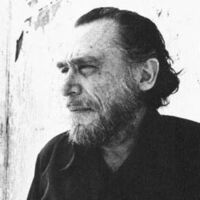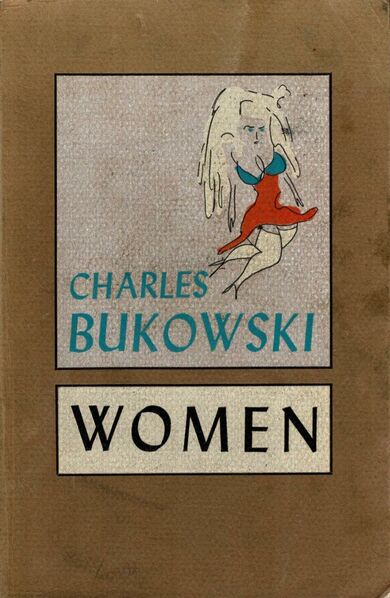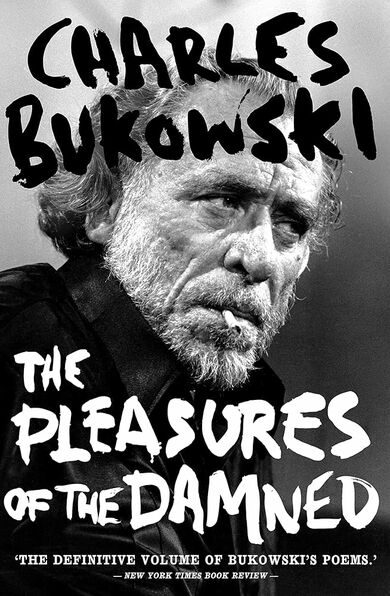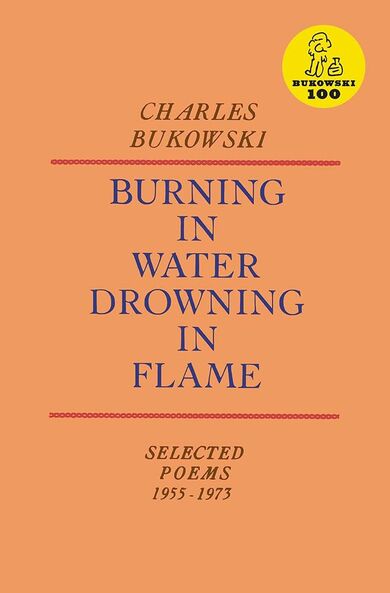I could see the road ahead of me. I was poor and I was going to stay
poor. But I didn’t particularly want money. I didn’t know what I wanted.
Yes, I did. I wanted someplace to hide out, someplace where one didn’t have to do anything. The thought of being something didn’t only appall me, it sickened me. The thought of being a lawyer or a councilman or an engineer, anything like that, seemed impossible to me. To get married, to have children, to get trapped in the family structure. To go someplace to work every day and to return. It was impossible. To do things, simple things, to
be part of family picnics, Christmas, the 4th of July, Labor Day, Mother’s
Day . . . was a man born just to endure those things and then die? I would rather be a dishwasher, return alone to a tiny room and drink myself to sleep.
My father had a master plan. He told me, “My son, each man during his lifetime should buy a house. Finally he dies and leaves that house to his son. Then his son gets his own house and dies, leaves both houses to
his son. That’s two houses. That son gets his own house, that’s three houses . . .”
The family structure. Victory over adversity through the family. He
believed in it. Take the family, mix with God and Country, add the ten-hour day and you had what was needed.
I looked at my father, at his hands, his face, his eyebrows, and I knew
that this man had nothing to do with me. He was a stranger. My mother was non-existent. I was cursed. Looking at my father I saw nothing but indecent dullness. Worse, he was even more afraid to fail than most others. Centuries of peasant blood and peasant training. The Chinaski bloodline had been thinned by a series of peasant-servants who had surrendered their real lives for fractional and illusionary gains. Not a man in the line who said, “I
don’t want a house, I want a thousand houses, now!”
He had sent me to that rich high school hoping that the ruler’s
attitude would rub off on me as I watched the rich boys screech up in their cream-colored coupes and pick up the girls in bright dresses. Instead I learned that the poor usually stay poor. That the young rich smell the stink
of the poor and learn to find it a bit amusing. They had to laugh, otherwise it would be too terrifying. They’d learned that, through the centuries. I would never forgive the girls for getting into those cream-colored coupes with the laughing boys. They couldn’t help it, of course, yet you always think, maybe . . . But no, there weren’t any maybes. Wealth meant victory and victory was the only reality. What woman chooses to live with a dishwasher?
Throughout high school I tried not to think too much about how things might eventually turn out for me. It seemed better to delay thinking . . .
Finally it was the day of the Senior Prom. It was held in the girls’
gym with live music, a real band. I don’t know why but I walked over that
night, the two-and-one-half miles from my parents’ place. I stood outside in
the dark and I looked in there, through the wire-covered window, and I was astonished. All the girls looked very grown-up, stately, lovely, they were
in long dresses, and they all looked beautiful. I almost didn’t recognize
them. And the boys in their tuxes, they looked great, they danced so
straight, each of them holding a girl in his arms, their faces pressed
against the girl’s hair. They all danced beautifully and the music was loud
and clear and good, powerful.
Then I caught a glimpse of my reflection staring in at them—boils
and scars on my face, my ragged shirt. I was like some jungle animal drawn
to the light and looking in. Why had I come? I felt sick. But I kept
watching. The dance ended. There was a pause. Couples spoke easily to each other. It was natural and civilized.
Where had they learned to converse and to dance? I couldn’t converse or dance. Everybody knew something I didn’t know. The girls looked so good, the boys so handsome. I would be too terrified to even look at one of those
girls, let alone be close to one. To look into her eyes or dance with her
would be beyond me.
And yet I knew that what I saw wasn’t as simple and good as it
appeared. There was a price to be paid for it all, a general falsity, that
could he easily believed, and could be the first step down a dead-end
street. The band began to play again and the boys and girls began to dance again and the lights revolved overhead throwing shades of gold, then red, then blue, then green, then gold again on the couples. As I watched them I said to myself, someday my dance will begin. When that day comes I will have something that they don’t have.
But then it got to be too much for me. I hated them. I hated their beauty, their untroubled youth, and as I watched them dance through the magic colored pools of light, holding each other, feeling so good, little unscathed children, temporarily in luck, I hated them because they had something I had not yet had, and I said to myself, I said to myself again, someday I will be as happy as any of you, you will see.
They kept dancing, and I repeated it to them. Then there was a sound behind me.
“Hey! What are you doing?”
It was an old man with a flashlight. He had a head like a frog’s head. “I’m watching the dance.”
He held the flashlight right up under his nose. His eyes were round and large, they gleamed like a cat’s eyes in the moonlight, But his mouth was shriveled, collapsed, and his head was round. It had a peculiar senseless roundness that reminded me of a pumpkin trying to play pundit.
“Get your ass out of here!”
He ran the flashlight up and down all over me.
“Who are you?” I asked.
“I’m the night custodian. Get your ass out of here before I call the cops!”
“What for? This is the Senior From and I’m a senior.”
He flashed his light into my face. The hand was playing “Deep Purple.” “Bullshit!” he said. "You’re at least 22 years old!”
“I’m in the yearbook, Class of 1939, graduating class, Henry Chinaski." “Why aren’t you in there dancing?”
“Forget it. I’m going home.”
“Do that.”
I walked off. I kept walking. His flashlight leaped on the path,
the light following me. I walked off campus. It was a nice warm night, almost hot. I thought I saw some fireflies but I wasn’t sure.






